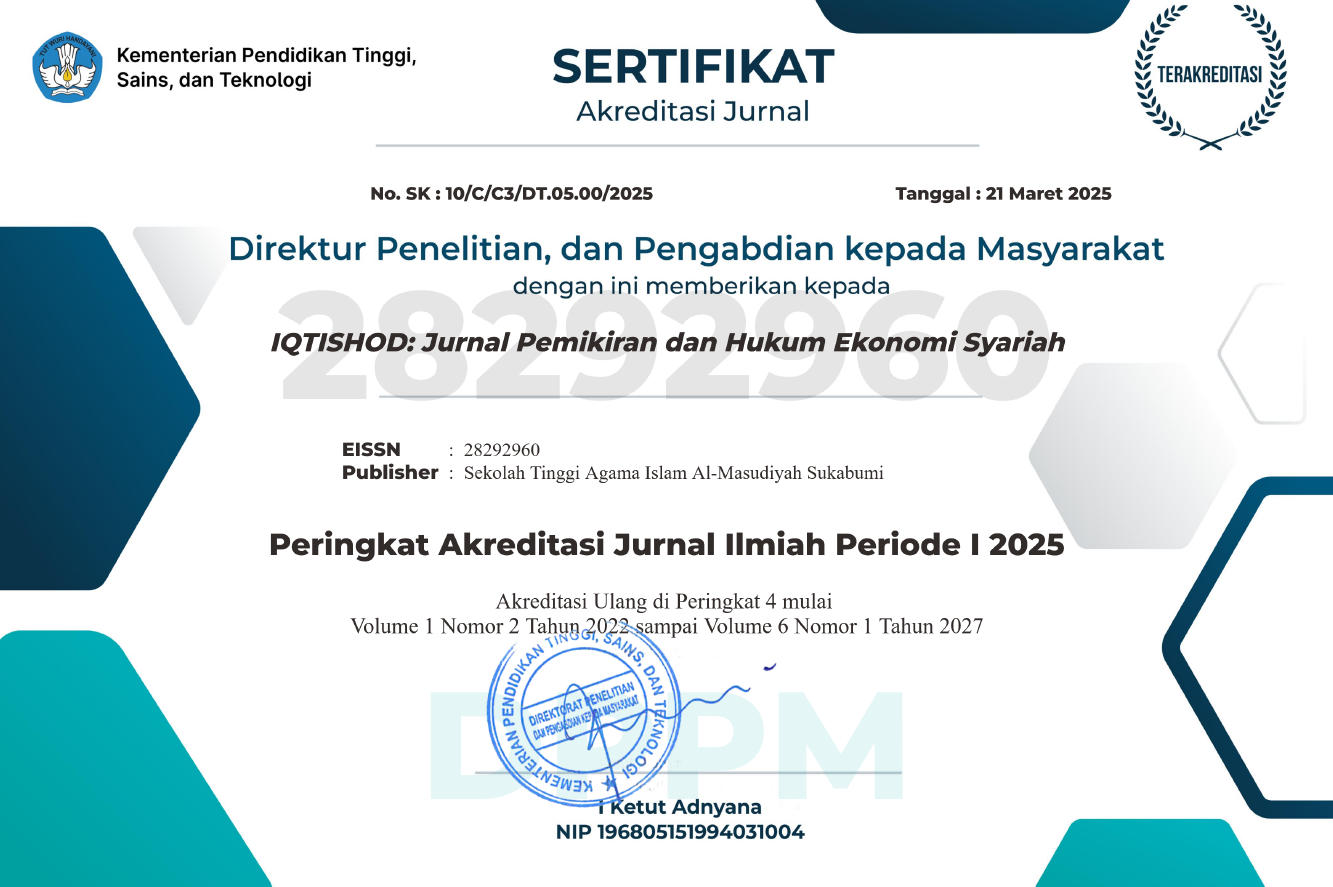Perkembangan Kinerja Baitul Mal Wa Tamwil (BMT) Sebagai Lembaga Keuangan Mikro Syari'ah Di Masa Pandemi
DOI:
https://doi.org/10.69768/ji.v1i2.10Keywords:
BMT, Covid-19, Sharia Financial Institutions, MSMEsAbstract
The emergence of the COVID-19 pandemic has had a significant impact on various sectors including the economy. This pandemic has not only spread to major countries but to almost all countries in the world, including Indonesia. Indonesia is one of the countries affected, including Islamic banking and finance. Therefore, the purpose of this study is to analyze the performance development of Sharia Microfinance Institutions (BMT) during the pandemic. In this study, the author uses a descriptive qualitative approach. This study seeks to understand the various concepts found in the research process, using content analysis techniques and library research. The results of the study conclude that the development of BMT, since the government's policy regarding the restriction of social and economic activities has decreased drastically. As a Sharia Microfinance Institution that serves business units that rely on daily transactions, with a tendency for people to work from home, people are not interested in doing activities outside the home so that it will have a direct impact on liquidity. As a financial institution that has played a role in the development of Micro, Small and Medium Enterprises (MSMEs) in Indonesia, the decline in the performance of MSMEs will also affect the development and performance of LKMS (BMT).
Downloads
Downloads
Published
Versions
- 2022-10-30 (2)
- 2022-10-31 (1)
How to Cite
Issue
Section
License
Copyright (c) 2022 IQTISHOD

This work is licensed under a Creative Commons Attribution-NonCommercial-NoDerivatives 4.0 International License.




